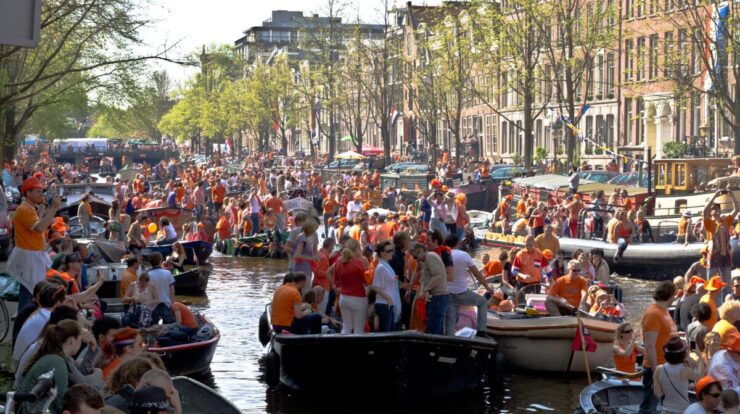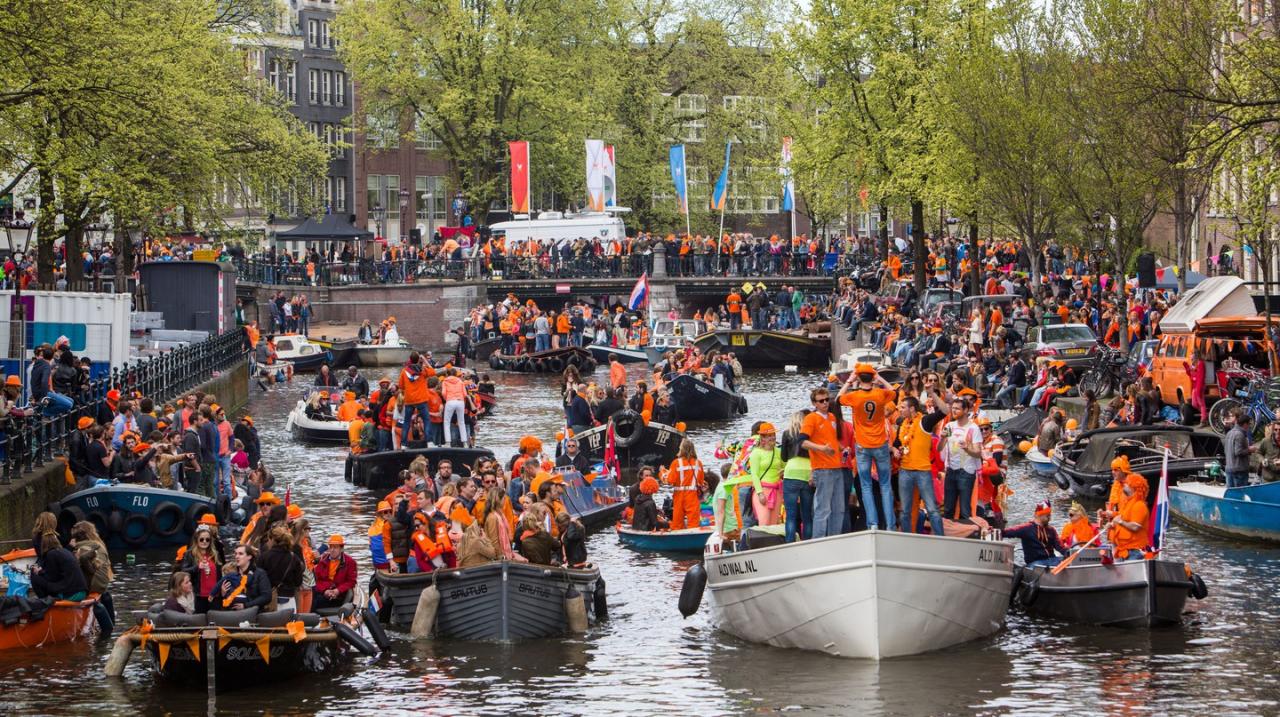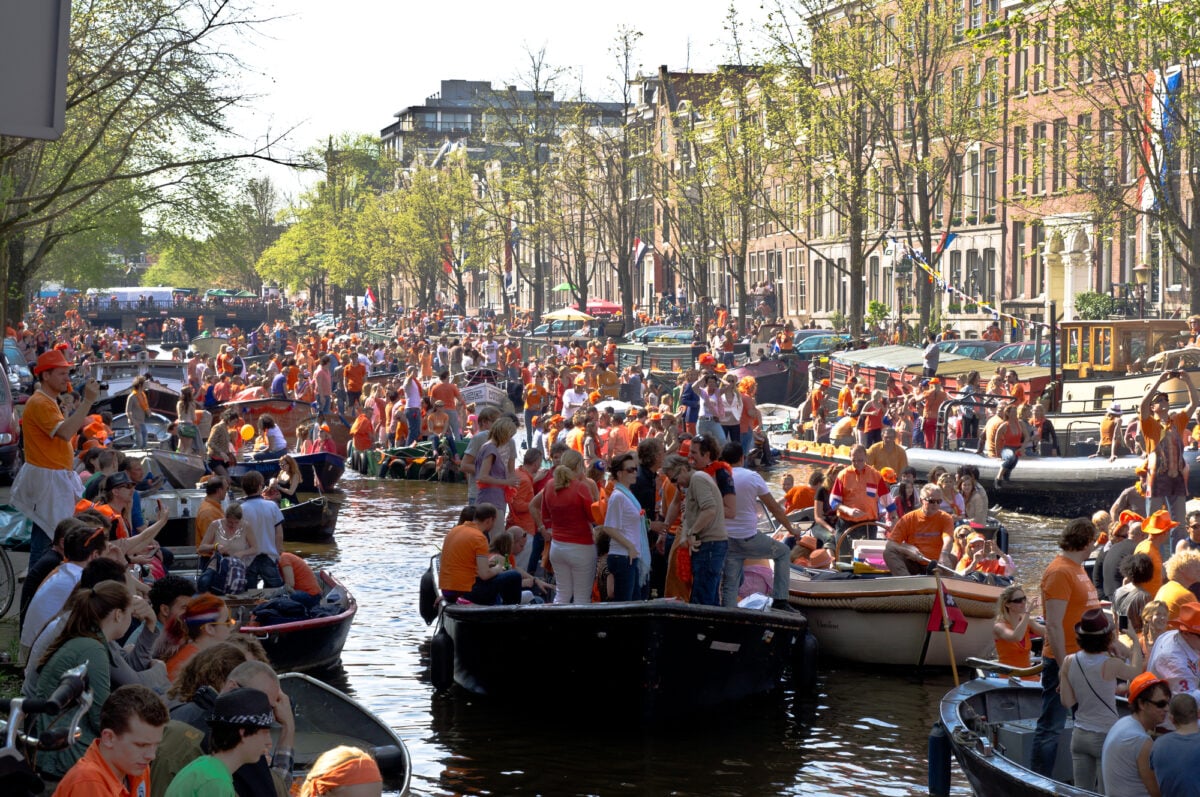
Netherlands Kings Day, a jubilant national holiday, is a testament to the rich history, vibrant culture, and enduring spirit of the Netherlands. Celebrated annually on April 27th, this day honors the reigning monarch and fosters a profound sense of unity and national pride.
With its origins deeply rooted in Dutch history and the House of Orange-Nassau, Kings Day has evolved over centuries to become a beloved tradition that brings together people from all walks of life.
Historical Significance: Netherlands Kings Day

The Netherlands has a rich history dating back centuries. The origins of Kings Day can be traced back to the House of Orange-Nassau, which has ruled the Netherlands since the 16th century.
William I of Orange, also known as William the Silent, led the Dutch revolt against Spanish rule in the 16th century. His birthday, April 27th, was originally celebrated as Prince’s Day to commemorate his birth.
In 1948, after the Netherlands gained independence, Princess Juliana ascended to the throne. She changed the name of the holiday to Queen’s Day to honor her mother, Queen Wilhelmina. When Juliana’s daughter, Princess Beatrix, became queen in 1980, the holiday was renamed again to King’s Day.
Traditional Celebrations

Kings Day is a vibrant and colorful celebration in the Netherlands. The streets are adorned with orange decorations, and people dress in orange clothing to honor the royal family.
Street markets and festivals are held throughout the country, offering a variety of food, drinks, and entertainment. Music and dancing are also an integral part of the celebrations, with many live performances taking place in public squares and parks.
Cultural Impact
Kings Day is an important social and cultural event in the Netherlands. It is a time for people to come together and celebrate their national pride and unity.
The monarchy plays a significant role in Dutch society, and Kings Day is an opportunity for people to show their support for the royal family.
The holiday also fosters a sense of national unity and belonging. It is a day when people from all walks of life come together to celebrate their shared Dutch heritage.
Economic Impact
Kings Day has a significant economic impact on the Netherlands. The influx of tourists and the increased spending on goods and services boost the economy.
The tourism sector benefits greatly from the holiday, as people from all over the world come to experience the unique atmosphere of Kings Day in the Netherlands.
The retail and hospitality sectors also see a surge in activity, as people purchase orange-themed merchandise and dine out at restaurants and cafes.
Modern Adaptations
Kings Day has evolved over time to reflect the changing tastes and traditions of the Dutch people.
New traditions have been introduced, such as the vrijmarkt, or free market, where people can sell their used goods.
Technology has also played a role in shaping the celebration, with social media being used to share photos and videos of the festivities.
International Recognition, Netherlands kings day
Kings Day has gained international recognition over the years. Other countries have adopted or influenced the celebration, such as Canada and the United States.
The cultural exchange that has occurred as a result has helped to spread the joy and spirit of Kings Day around the world.
Conclusive Thoughts
As the Netherlands Kings Day festivities draw to a close, the streets echo with the laughter and joy of a nation united in celebration. This day serves as a reminder of the country’s rich heritage, cultural diversity, and unwavering spirit.
From its humble beginnings to its modern-day grandeur, Kings Day has become an integral part of Dutch identity, showcasing the country’s vibrant traditions, economic vitality, and global recognition.
Key Questions Answered
What is the significance of the color orange on Kings Day?
Orange is the national color of the Netherlands and is associated with the House of Orange-Nassau, the reigning royal family.
What are some popular traditions associated with Kings Day?
Traditional activities include wearing orange clothing, attending street markets and festivals, and enjoying music and dancing.
How does Kings Day contribute to the Dutch economy?
The holiday boosts tourism, retail sales, and hospitality revenue, contributing significantly to the overall Dutch economy.





